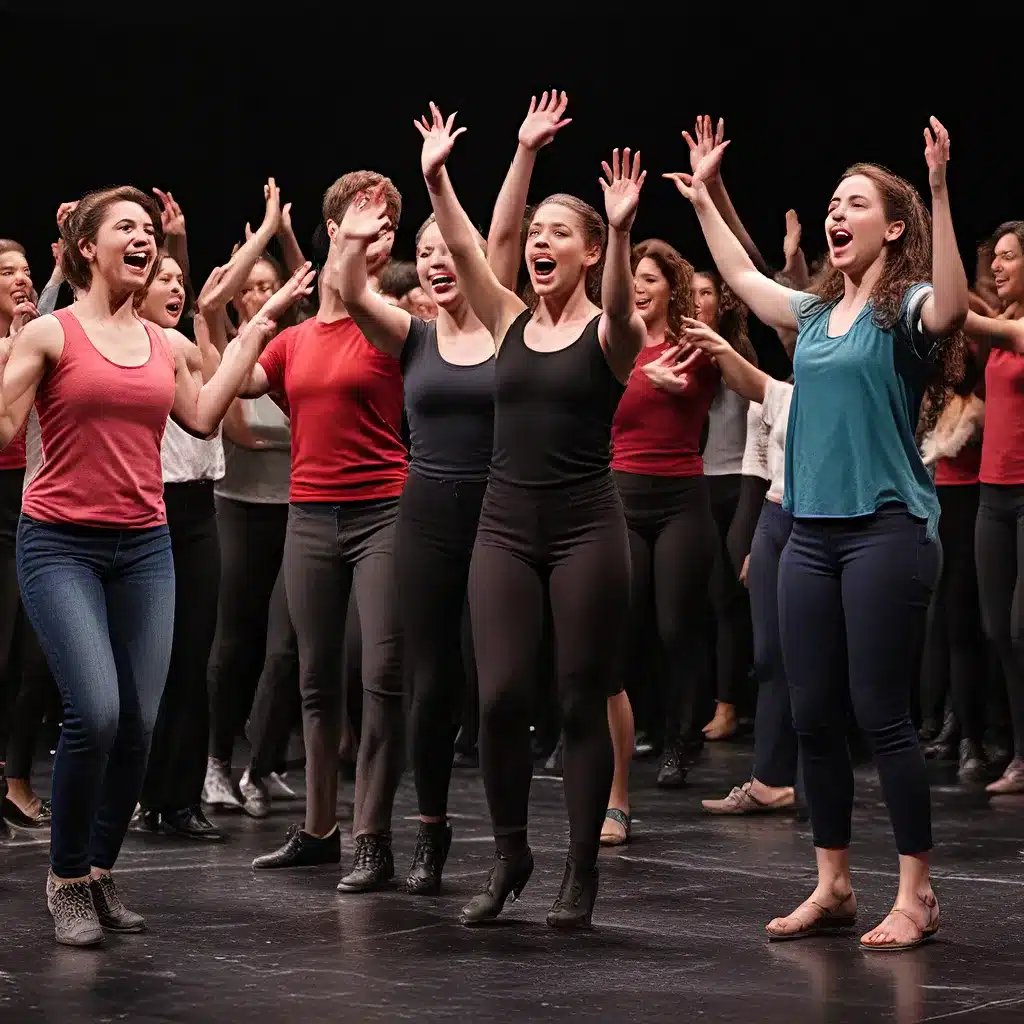
As a lifelong lover of the performing arts, I’ve always been fascinated by the world of musical theater education. The way these dedicated educators nurture young talent, unlock their students’ potential, and cultivate a deep appreciation for the stage has always left me in awe. So, when I was tasked with writing an in-depth article on this topic, I couldn’t wait to dive in and share what I’ve learned.
Fostering a Conservatory-Caliber Environment
One of the standout features of the Baldwin Wallace Conservatory of Performing Arts is its commitment to providing a conservatory-level experience for all its students, including those pursuing a music education degree. As Dr. David Pope, Chair of the Professional Studies Department, explains, “Small class sizes, personalized attention, and faculty mentoring are at the forefront of our program. Our faculty-student ratio is 7:1 in the Conservatory, ensuring each student receives the individualized support they need to thrive.”
This emphasis on fostering an intimate, mentorship-driven learning environment is echoed by Dr. Lorelei Batisla-ong, Associate Professor of Music Education. “At BW, our music education majors receive the same length of private lessons and performance opportunities as our performance majors,” she shares. “Developing high-level performance skills is a top priority, as we believe it’s essential for aspiring educators to be skilled practitioners themselves.”
The Conservatory’s impressive performance traditions and collaborations with regional and national organizations further elevate the student experience. From the Boesel Musical Arts Center’s state-of-the-art rehearsal halls to the university’s status as an All-Steinway School, the learning environment is truly world-class. As Dr. Andrew Machamer, Assistant Professor of Music Education, notes, “These resources, combined with our faculty’s real-world expertise, provide our students with unparalleled opportunities to perform, compose, conduct, teach, and manage at a professional level.”
Bridging Theory and Practice
While the Conservatory’s technical resources and talented faculty are undoubtedly impressive, the true heart of the music education program lies in its seamless integration of theory and practice. “From day one, our students are in the classroom, observing experienced educators and assisting with instruction,” explains Dr. Jami Lercher, Assistant Professor of Choral Music Education. “This hands-on experience is invaluable, allowing them to apply the pedagogical principles they’re learning in their coursework to real-world scenarios.”
This focus on blending academic study with practical application extends throughout the program. Music education majors at BW take a comprehensive curriculum covering music theory, history, literature, and tonal harmony, alongside education courses on topics like classroom management, teaching philosophy, and curriculum design. “The reduced number of required credit hours in the music education degree gives our students the freedom to explore their unique musical interests, both within and outside of the field of education,” says Dr. Pope.
Beyond the classroom, BW’s music education students are heavily involved in the university’s vibrant performance community, participating in major ensembles, student organizations, and community outreach initiatives. “Our students work as paid instructors and interns for the Community Arts School, where they’re mentored by world-class conductors and national leaders in music education,” shares Dr. Batisla-ong. “This exposure to diverse teaching and leadership opportunities is invaluable in shaping well-rounded, adaptable educators.”
Preparing for the Classroom and Beyond
As the culmination of their studies, BW music education majors complete a full-semester student teaching experience, collaborating with experienced educators in local school districts. “This immersive, hands-on practicum is the true test of our students’ readiness,” explains Dr. Machamer. “It’s where they put everything they’ve learned into practice, refining their instructional skills and developing the confidence to lead their own classrooms.”
The program’s commitment to excellence is evidenced by the consistent success of its graduates. “100% of our music education graduates have passed the Ohio Teacher License test,” shares Dr. Pope proudly. “They not only meet, but often exceed the rigorous standards set by the state, making them highly sought-after in the field.”
Indeed, BW’s music education alumni can be found thriving in a wide range of settings, from leading choral programs at the high school and collegiate levels to directing elementary music curricula. As Dr. Lercher enthuses, “Our graduates are making their mark as educators, performers, and arts leaders nationwide. They’re a true testament to the transformative power of a BW education.”
Fostering Lifelong Passion and Creativity
Perhaps the most inspiring aspect of the BW Conservatory’s music education program is its ability to cultivate a deep, lifelong passion for the performing arts. “We don’t just train our students to be effective educators,” says Dr. Batisla-ong. “We inspire them to be artists, leaders, and advocates for the transformative power of music and theater.”
This holistic approach is evident in the diverse paths BW graduates have pursued, from pursuing advanced degrees at top-tier institutions to landing positions with renowned orchestras, operas, and theater companies. As Dr. Machamer enthuses, “Our alumni are making waves in the field, but they’re also giving back to their communities, using their skills and creativity to enrich the lives of their students and audiences.”
For me, interacting with the faculty and students of the BW Conservatory has been a true revelation. I’ve seen firsthand how this program’s unwavering commitment to excellence, mentorship, and real-world experiences elevates the student experience and prepares the next generation of musical theater educators to thrive. As I look to the future of the performing arts, I can’t help but feel inspired by the boundless potential of these young artists and educators.
If you’re a aspiring musical theater educator, I encourage you to explore the opportunities available at the Musical Theater Center and consider the transformative power of a BW Conservatory education. Who knows – you might just be the next star to grace the stage and inspire the hearts of countless students to come.

